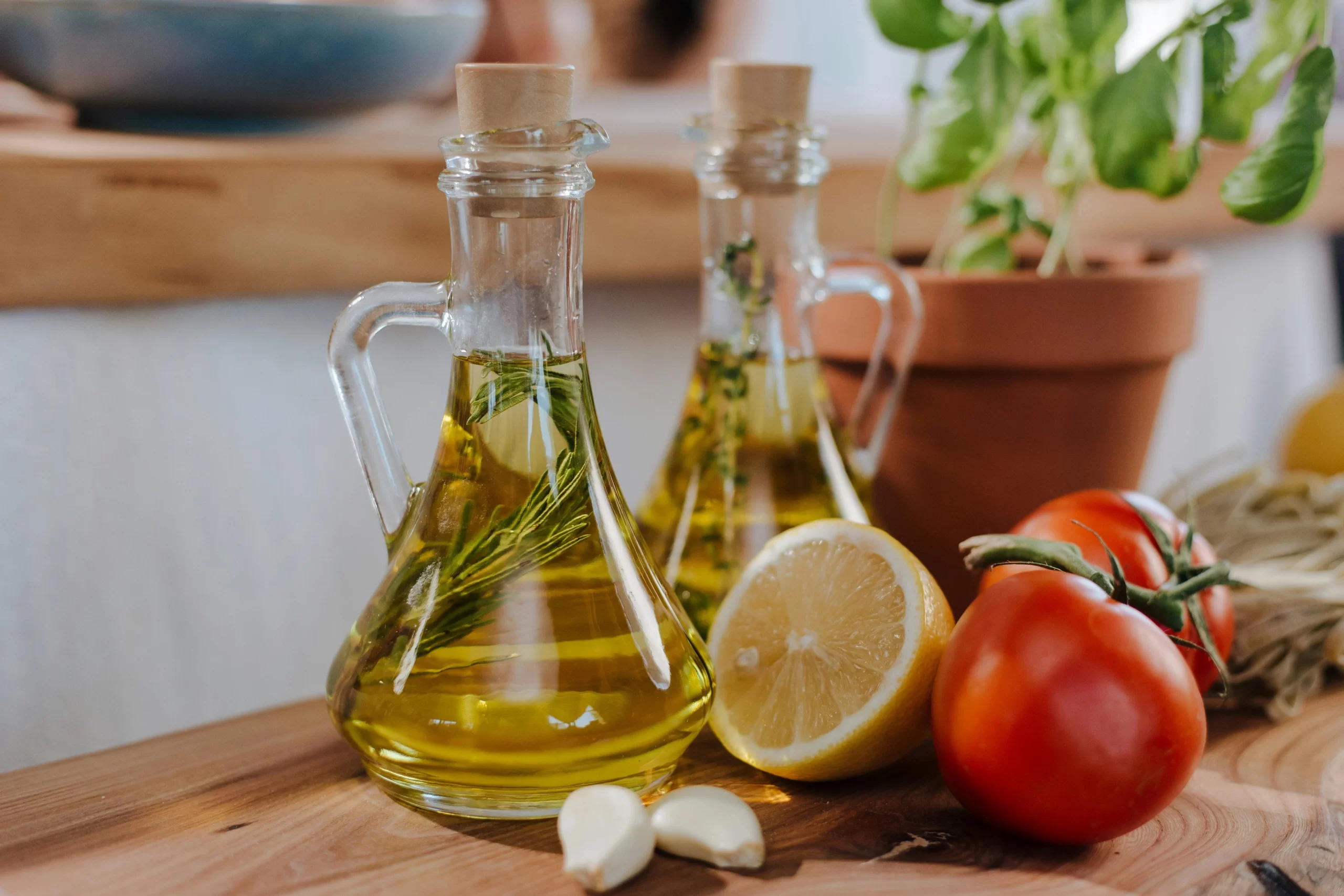Cholesterol plays a crucial role in heart health, with two main types: HDL (high-density lipoprotein), known as “good cholesterol,” and LDL (low-density lipoprotein), referred to as “bad cholesterol.” HDL helps remove LDL cholesterol from the bloodstream, reducing the risk of plaque buildup in arteries, while excess LDL can lead to narrowing and stiffening of blood vessels, increasing the risk of heart attacks and strokes.
Triglycerides, another type of fat in the blood, can also contribute to heart disease if levels are high. Maintaining HDL and LDL cholesterol balance is essential for cardiovascular health.
Eating Oil for Better Health
Types of dietary fats
Dietary fats can be divided mainly into 4 types, depending on their chemical structure and physiology.
- Mono-unsaturated Fatty Acids (MUFA): Lower LDL cholesterol, improve HDL levels, support heart health, and regulate blood sugar. eg Oilive oil, canola oil etc.
- Poly-unsaturated Fatty Acids (PUFA): Two main types, omega-3 fatty acids (fish oils) and omega-6 fatty acids (sunflower, soybean oil), are also healthy in moderate consumption.
- Saturated Fats: Typically solid at room temperature (animal fats, ghee, butter, dalda, etc.), are harmful in excessive amounts. It increases the LDL level and increases the risk for CVD.
- Trans Fats: Created during the hydrogenation of liquid oils, often found in processed foods (pastries, cookies, fast food, etc.), which is considered harmful and should be avoided completely.
Recommended Oils for Heart Health
- Olive Oil: Rich in monounsaturated (MUFA) fats and antioxidants, olive oil can lower the risk of cardiovascular disease (CVD). It is best consumed raw (e.g., drizzled over salads) as heating reduces its nutritional benefits.
- Mustard Oil: Beneficial for cardiovascular health and inflammation. It contains MUFA, PUFA (omega-3 and omega-6), but should be consumed cautiously due to its high erucic acid content.
- Sunflower Oil: Rich in PUFA (omega-6), it provides essential nutrients like vitamin E, but is less stable under high heat. Refined varieties may contribute to oxidative stress when used excessively.
- Coconut Oil: While controversial due to its high saturated fat content, that may boost HDL cholesterol when consumed moderately.
- Sesame Oil: Rich in antioxidants and vitamin E, sesame oil supports cholesterol balance and heart health when consumed raw.
Daily Oil Intake
For a healthy adult, limit oil consumption to about 3-4 teaspoons per day (approximately 20 ml). Excessive intake can lead to obesity, hormonal imbalances, and elevated LDL levels.
Common Mistakes When Consuming Oil
- Overheating Oils: Heating oils beyond their smoke point generates harmful compounds like HNE, which are linked to vascular diseases and other health issues.
- Reusing Cooking Oil: Reusing oil increases trans fats and harmful compounds, heightening risks of heart disease and diabetes.
- Excessive Consumption: Overusing oils with saturated fats (e.g., palm oil, ghee) can reduce HDL levels and promote plaque formation in arteries.
- Ignoring Variety: Using only one type of oil limits nutrient diversity. Rotating oils like olive oil for salads and avocado oil for cooking ensures a balanced intake of healthy fats.
Relation Between Oil Consumption and Cardiac Health
The type and quantity of oil consumed directly influence cholesterol levels:
- Healthy oils like olive oil improve lipid profiles by lowering LDL cholesterol and increasing HDL levels, reducing inflammation associated with heart disease.
- Unhealthy oils (e.g., trans fats) exacerbate arterial plaque buildup through elevated LDL levels, leading to atherosclerosis, the main cause of heart attacks and strokes.
By choosing oils wisely and consuming them in moderation, individuals can protect their cardiovascular health while enjoying flavorful meals.
Citations:
[1] https://www.medicalnewstoday.com/articles/321484
[2] https://www.betterhealth.vic.gov.au/health/conditionsandtreatments/cholesterol-healthy-eating-tips
[3] https://timesofindia.indiatimes.com/life-style/health-fitness/diet/5-oils-that-should-be-consumed-raw/articleshow/113998461.cms
[4] https://silkymahajan.com/how-much-oil-should-you-consume-daily/
[5] https://www.everydayhealth.com/news/best-worst-oils-health/
[6] https://timesofindia.indiatimes.com/life-style/health-fitness/health-news/reusing-oil-increases-risks-there-should-be-guidelines-for-street-food/articleshow/118154784.cms
[7] https://www.health.harvard.edu/blog/understanding-cholesterol-hdl-vs-ldl-2018041213608


Leave a Reply